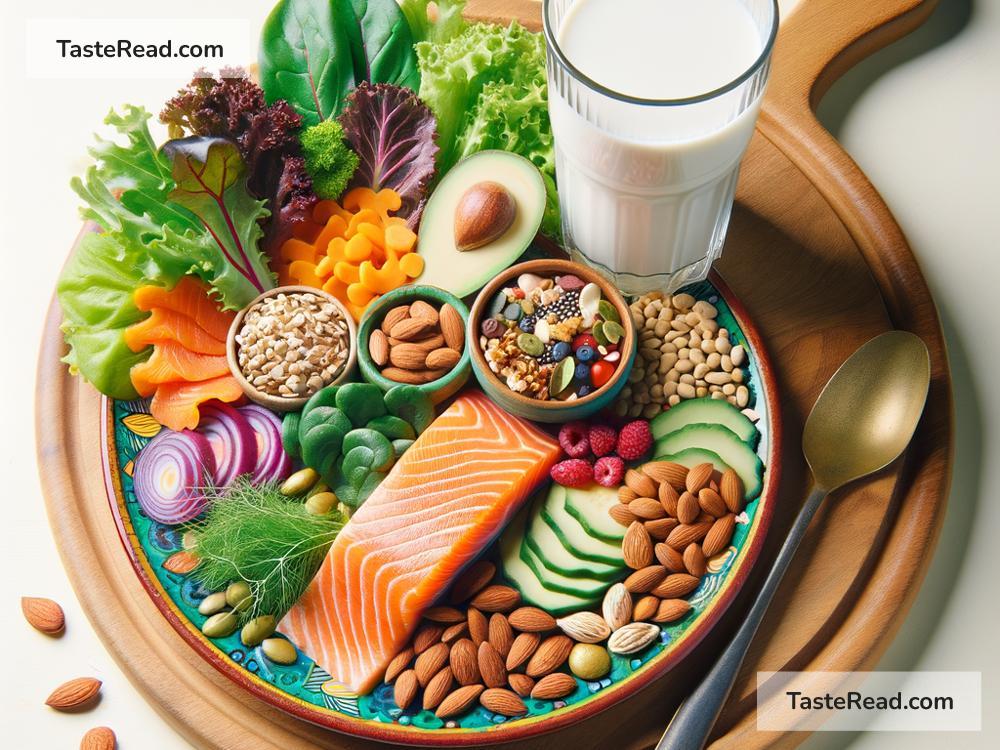The Benefits of a Balanced Diet for Bone Health: Supporting Skeletal Function
Bones are the solid framework that holds your body together. They provide structure, protect vital organs like your heart and lungs, and help you move. But have you ever thought about what keeps your bones strong and healthy? The answer is a balanced diet. What you eat plays a big role in keeping your bones strong and your skeletal system functioning properly.
In this article, we’ll explore the key benefits of a balanced diet for bone health, the nutrients your bones need, and simple ways to include them in your meals. By the end, you’ll know how to take care of your bones with everyday food choices.
Why Your Bone Health Matters
Your bones are constantly changing. Even though they feel hard and stable, bones are living tissues that rebuild themselves over time. This process is called bone remodeling. Old bone tissue breaks down, and new tissue develops to replace it. When you’re young, your body builds more bone than it loses, making bones strong and dense. However, as you age, this process slows down, and you may start losing bone mass.
Without proper care, bones can become weaker over time, leading to conditions like osteoporosis. This condition makes your bones brittle and more likely to break. That’s why it’s important to take care of your skeletal health starting early, and one of the simplest ways to do this is by eating a well-balanced diet.
Key Nutrients for Strong Bones
Certain nutrients are especially important for keeping your bones healthy. Here are the top ones to focus on:
1. Calcium
Calcium is the most important mineral for bone health. It helps build strong bones and teeth. Almost 99% of the calcium in your body is stored in your bones.
Foods rich in calcium include:
– Milk, cheese, and yogurt
– Leafy green vegetables like kale and spinach
– Almonds
– Tofu and other soy products
2. Vitamin D
Vitamin D helps your body absorb calcium effectively. Without enough vitamin D, your bones cannot get the minerals they need to stay strong.
Good sources of vitamin D include:
– Sunlight (your skin makes vitamin D when exposed to sunlight)
– Fatty fish like salmon and tuna
– Fortified foods such as milk, orange juice, and cereals
3. Magnesium
Magnesium supports the structural development of your bones and works alongside calcium to keep them strong.
Magnesium can be found in:
– Nuts and seeds (like almonds and sunflower seeds)
– Whole grains (such as brown rice and oats)
– Avocados
4. Vitamin K
Vitamin K helps regulate bone metabolism and supports the formation of bone proteins.
Foods rich in vitamin K include:
– Spinach, broccoli, and Brussels sprouts
– Eggs
– Fermented foods like natto (a type of soy)
5. Protein
Protein is essential for building bone tissue. It also helps repair damaged bones and muscles.
Good protein sources include:
– Lean meats, poultry, and fish
– Beans and legumes
– Dairy products
Benefits of a Balanced Diet for Bone Health
A healthy diet gives your body the building blocks it needs to keep your bones strong. Here are some specific ways a balanced diet benefits your bone health:
1. Supports Bone Growth and Strength
Calcium and vitamin D work together to build dense, strong bones, especially during childhood and teenage years. Adults benefit too, as these nutrients help prevent bone loss.
2. Prevents Bone Diseases
Getting enough nutrients reduces your risk of bone-related conditions like osteoporosis and fractures. For example, magnesium strengthens bone tissue, while vitamin K helps support bone mineralization (the hardening process of bones).
3. Improves Skeletal Balance
Your bones hold calcium for the rest of your body. If you don’t get enough calcium from food, your body pulls it out of your bones, making them weaker over time. Eating enough calcium keeps this balance in check.
4. Supports Physical Function
Healthy bones allow you to move freely, carry weight, and perform daily activities. Strong bones mean you’re less likely to experience fractures or injuries, especially as you age.
Tips for Adding Bone-Building Foods to Your Diet
Taking care of your bones doesn’t have to be complicated. Here are some easy ways to incorporate these nutrients into your meals:
- Start your day with calcium-rich breakfast options like yogurt with granola or fortified cereal with milk.
- Snack smart. Grab a handful of almonds or veggies with hummus instead of chips.
- Cook nutrient-packed meals. Add leafy greens like spinach to stir-fries, sandwiches, or pasta dishes.
- Think beyond dairy. If you’re lactose intolerant, try calcium-fortified plant-based milk (such as almond or soy milk).
- Get outdoors for vitamin D. Spend a few minutes in the sunshine each day.
Conclusion
Your bones are the foundation of your body, and they need the right nutrients to stay strong and healthy. By eating a balanced diet with calcium, vitamin D, magnesium, and other key nutrients, you can support your skeletal system now and in the future.
Taking small steps, like including bone-building foods at every meal, makes a big difference over time. Whether it’s enjoying a glass of milk, cooking leafy greens, or soaking up some sunlight, your choices can keep your bones strong for years to come.
So, start today—your bones will thank you!


